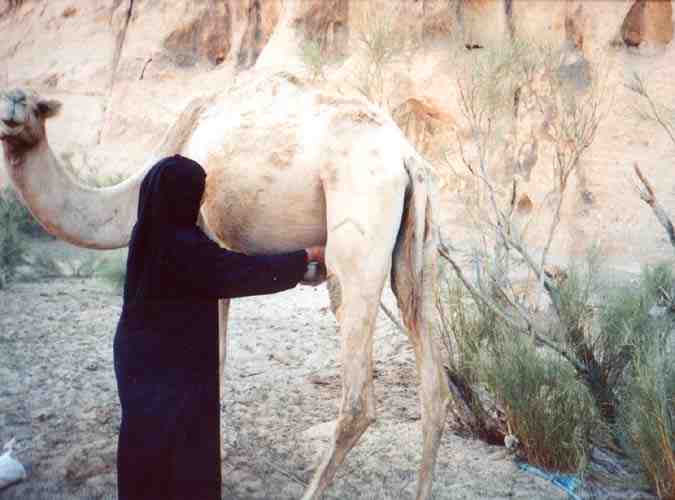In a story that could have been straight out of Michigan, or Ontario, or Washington, Saudi Arabia is cracking down on raodside sales of raw camel milk. It seems that microbiological concerns and consumer choice are arguments that transcend cultural boundaries. A summary table of fodborne illness outbreaks related to the consumption of raw milk is available at http://www.foodsafety.ksu.edu/articles/384/RawMilkOutbreakTable.pdf

City curbs roadside camel-milk vendors
05.may.07
Arab News (Saudi Arabia)
Hasan Hatrash
http://www.arabnews.com/services/print/print.asp?artid=95797&d=5&m=5&y=2007&hl=City%20Curbs%20Roadside%20Camel-Milk%20Vendors
JEDDAH — One usually doesn’t have to travel very far in the Kingdom to run into people who are selling containers of freshly squeezed camel milk by the side of the road. But, according to this story, fans of the salty, nutrient-rich liquid will have a little bit more trouble finding their fix now that the Jeddah Municipality announced this past week that it would ban the sale of raw camel milk because of what it calls a hygienic risk.
The story says that in Jeddah’s Al-Khomrah area, where many camel herds are located, authorities have already confiscated the equipment that milk salesmen were using for their small-time operations.
Awad Al-Malki, head of the municipality branch of southern Jeddah, was cited as saying that the municipality’s anti-illegal street vendors committee has confiscated all the equipment used by camel-milk salesmen who are located in Al-Khomrah area, and that the crackdown is part of an overall strategy to reduce informal street commerce. Some 70 milk-vending spots in the city have already been raided.
Hamid Al-Harbi, a Saudi from the southern Al-Mahjar district who says he’s been drinking roadside camel milk all of his life with no complications, was quoted as saying, "I’m quite disappointed that I can’t buy fresh camel milk any more. How come they’re doing such a thing so suddenly now."
Misfir Al-Zahrani, a middle-aged Saudi living in the Ghulail district, was cited as saying that he and his family drink fresh camel milk at least once a week and that the ban of selling fresh camel milk is an annoyance, but it will not stop people from going to local farms and buying the milk there instead of at roadside stalls.
Dr. Fawzy Ahmad, a general practitioner at Al-Marwah Clinic, was cited as saying that drinking raw milk can have its health risks. Bacteria, like salmonella and listeria, he says, can be found in raw camel milk — milk that has not been pasteurized — in quantities that don’t make camels sick but can cause gastrointestinal havoc to humans.
The very young, the elderly and the infirm can have serious, even fatal, complications from bacteria that might also make healthy adults sick for a couple of days.
